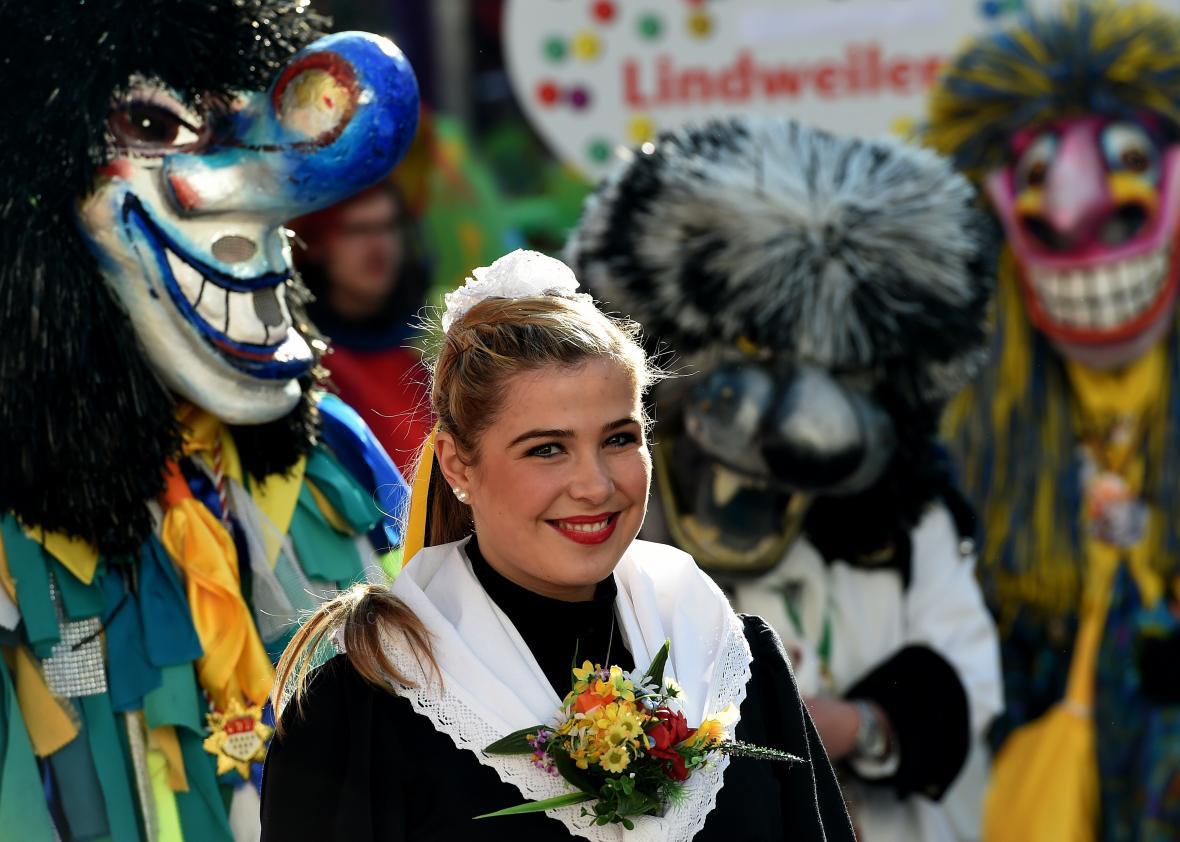The city of Cologne has a new idea to keep women safe from the kind of organized sexual assaults that horrified the world on New Year’s Eve. With the Cologne Carnival—Germany’s Mardi Gras equivalent—starting next week, city officials have announced that there will be a “safe zone” for women at the public event, as well as extra street lighting.
Cologne has 10 percent of its police force currently investigating reports from around 100 women who say they were surrounded by groups of men, groped, robbed, and, in at least two cases, raped. Even so, much of the city’s public edicts after the attacks have placed the onus of safety on women themselves. Earlier this month, Cologne Mayor Henriette Reker suggested that women stay away from large public gatherings and keep “a certain distance of more than an arm’s length” away from strange men to avoid being victimized. “Women would also be smart not to go and embrace everyone that you meet and who seems to be nice,” Reker said. “Such offers could be misunderstood, and that is something every woman and every girl should protect herself from.”
Using the hashtag #einearmlaenge (#anarmslength), Germans mocked Reker on Twitter. “The most annoying thing is that we didn’t know this #einearmlaenge trick before now. Just think of what women could have prevented,” one woman wrote. Staying an arm’s length away from men has never protected a woman from sexual assault, but the suggestion gives credit to the idea that women invite sexual assault by getting too close to men who just can’t help themselves. The women who were attacked on New Year’s Eve were not attacked because they put themselves at risk by embracing strangers. They were surrounded, chased, and grabbed at; whatever space they’d left between themselves and their assailants was quickly invaded.
Men’s rights groups are already condemning the safe zones as discriminatory toward men, a few of whom were also robbed during the New Year’s Eve attacks. I don’t have much sympathy for that complaint—pickpocketing is always a danger in large crowds, and in Cologne, women were specifically targeted for sexual assaults because they were women. Still, any time there’s a space limited to one gender, it raises concerns of exclusivity and gendered essentialism that need not have a place in Cologne’s efforts to combat a rash of sexual assaults.
And even a safe zone staffed with social workers, as Cologne’s will be, is a shoddy Band-Aid on a gaping wound. Cologne Carnival tourism representatives did not respond to a request for comment, but the plan raises all kinds of questions about the purpose of the zone, none of which invite satisfying answers. What will happen in the safe zone? Will it be a place for women to sit around, talking softly about the patriarchy, before returning to the fray? Will there be barriers around the safe zone, with crowds of men leering through the bars, waiting for women to exit? Why would anyone hang out in a safe zone while Carnival is going on? Are women supposed to visit the safe zone to report a sexual assault after it’s already happened?
Designating one certain area “safe” implies that the rest of the city is “not safe”—that the only place women can expect bodily autonomy is in an isolated, single-gender quarantine. Consider what one “safe zone” says to the men of Cologne about the spaces outside its bounds.
